
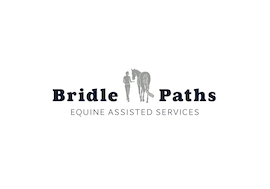
Bridle Paths
43427 Spinks Ferry Road
LEESBURG, VA 20176
Mailing Address:
17160 Spring Creek Lane
LEESBURG, VA 20176
Phone: 571-216-9089
MAKE AN INQUIRY
View our WEBSITE
EIN: 46-1402120Founded: 2012
View our PHOTO GALLERY
Profile Last Updated December 19, 2025Public Charity

The Guardian Seal of Transparency is awarded annually to recognize an organization's commitment to transparency and accountability by their willingness to make comprehensive data about their programs, horse care practices, and governance available for public scrutiny. The Guardian Seal of Transparency is NOT an endorsement.
Last Updated: May 13, 2025
Bridle Paths has not attained the Guardian designation for 2026.

MISSION & PROGRAMS
Mission:Bridle Paths' mission is to offer strength, support, and healing to individuals and families through safe, effective, and high-quality equine-assisted services. We serve those with invisible challenges such as attention deficit disorder, autism spectrum disorders, anxiety and depression, self-harm, suicidal ideation, brain injuries, post-traumatic stress, and trauma.
It is our vision to sustain an environment and an opportunity for our clients to connect, communicate, and trust, in partnership with horses.
Our organization conducts Equine Assisted Services in accordance with the EQUUS Foundation Guidelines on Qualifications of Organizations Conducting Equine Assisted Services (EAS).
Our organization does not provide outreach and/or public education programs involving horses.
100% of our total programs and services are equine-related.
Our organization is directly responsible for the care and shelter of equines involved in our programs.
Our organization does not CURRENTLY use satellite, overflow, foster, and/or outreach facilities.
Please describe what steps your organization takes to ensure that:
1) all interactions between your equines and people are mutually beneficial and conducted in accordance with the Guidelines for Human-Equine Interactions stated below;
2) all equines in the care of our organization and/or equines that participate in the organization's program have access to clean drinking water at all times; nutritious food in sufficient quantity, including natural forage such as pasture grass and/or hay; appropriate veterinary, farrier, and dental care; shelter and protection from the weather; sufficient safe space to move around comfortably on a daily basis; and daily opportunity to freely interact and have contact with other equines:
It is our conviction at Bridle Paths that our program is only as safe and effective as our horses are happy, healthy, and comfortable. For that reason, we are vigilant to ensure that each horse receives the care, training, and support that he or she needs to participate willingly and appropriately in the programs that Bridle Paths offers.
We recognize that equine-assisted services can be extremely stressful for horses, insofar as the horses regularly interact with participants who can be unpredictable and unbalanced. Further, we know that many of our horses come to us as a second or even a third career, and that they may have physical limitations such as arthritis, visual impairments, ulcers, and dentition issues. For these reasons, we maintain each horse on a regular program of veterinary and farrier care (including medications, supplements, and alternative therapies when necessary), as well as dental care and regular evaluations of tack fit, to ensure that each horse can engage in mounted work as comfortably as possible. We host Masterson Method bodywork training sessions on a regular basis, and have received training in this method to help our horses to release tension in their bodies in a relaxed way. We support our participants in sharing this work with the horses. Our feeding program takes account of tooth wear, ulcers, and possible metabolic issues.
Program staff and volunteers participate in weekly lessons with a former advanced level eventer who teaches lessons specific to each horse's physical condition and limitations, training, and enrichment. The horses take hacks around the property, jump, do dressage, long line, and longe with experienced riders and horse handlers to maintain their strength, balance, and flexibility, and to provide a counterpoint to the work they do with our participants.
Additionally, in the fall of 2024 we hired an equine manager who graduated from Virginia Tech with a Bachelor’s degree in Animal and Poultry Sciences and minors in Agricultural Applied Economics and Psychology, and earned her Master’s degree from Northwestern University in Mental Health Counseling; she is currently a Resident in Counseling. Our equine manager is a lifelong equestrian with a diverse background, including foxhunting, hunters, eventing, and jumpers. She is an active polo player and has worked in the thoroughbred racing industry both on the backside at racetracks and training centers, and helped rehome and retrain recently retired racehorses in careers such as polo. Our equine manager is responsible for: (1) overseeing the care, training, conditioning, and management of Bridle Paths equines; (2) supporting the provision of adaptive riding lessons, equine-assisted learning sessions, and equine-assisted psychotherapy groups; (3) working collaboratively with staff to train and support volunteers in working with the horses; and (4) supporting the maintenance of the barn and facilities.
We recognize that horses may struggle to engage with our participants, volunteers, and visitors, because many people are unaware of the nature of horses as sentient beings. People often think of doing "to" horses, rather than doing "with" them as partners, particularly in the competition venues from which our horses often come. Therefore, we are diligent in sensitizing and educating participants, volunteers, and visitors alike to the nature of horses as prey animals and herd animals, and in training everyone to work with the horses in an attuned, quiet, and respectful manner. Safety is enhanced as people become proficient in reading the horses' subtle cues, thereby precluding the need for the horses to communicate more "loudly" by kicking, biting, bucking, rearing, etc. Each of our weekly participants spends time on the ground with his or her horse, grooming and tacking and noticing how the horses is doing on that particular day; in some cases, participants may opt not to ride at all, rather engaging in some sort of groundwork with the horses. Additionally, in each session we offer, we remind participants that safety lies first and foremost in our awareness – of what’s going on in the environment, of what the horses are doing, and how each of us shows up in our equine interactions. Safety lies not in restricting or controlling or forcing any sort of interactions, but rather in exercising choice and in understanding and responding to what is being communicated from moment to moment.
In training volunteers and working with participants, we emphasize the fact that each horse is an individual, with his or her unique temperament and experiences. Not every horse is required to do every job in the program. Certain horses can move easily among the adaptive riding, equine-assisted learning, and equine-assisted psychotherapy aspects of the program (and in fact, they sometimes seem to enjoy this "cross training"). However, a few of our horses find the under saddle work to be difficult, because of previous bad experiences with riders or heightened reactivity to outside stimuli. These horses work almost exclusively in the groundwork parts of the program, such as equine-assisted psychotherapy; two of our horses work particularly well with participants with experiences of trauma and substance use disorders because of their responsiveness and sensitivity. We know that this emotional "heavy lifting" can be challenging for a horse to handle, so we are scrupulous about debriefing our equine partners with a good scratch or groom, an opportunity to roll or run in the arena, or a return to the stall for some quiet time. Some horses have indicated clearly that they cannot work in more than one psychotherapy session in one day, and we honor that request.
As noted elsewhere in this document, the Bridle Paths program provides emotionally-attuned services with a focus on relationship, communication, connection, and trust. The relationship with the horse provides participants with a rare opportunity to come as they are, and to be who they are, without judgment or expectation. On occasion, horses that enter the program demonstrate challenges other than the physical; for example, they may be highly sensitive and reactive on the ground or under saddle, or they might be shut down and wary of engaging with people. Especially for our participants who have experienced trauma, interacting with these types of horses can externalize and normalize some of their personal challenges. We encourage our participants to be curious about the information the horse shares, and we teach techniques and skills that can help to settle and soothe these more fractious horses. As these participants feel more grounded and stabilized, they can begin to engage with their horses and with their environments in a more authentic and empowered way.
As indicated previously, our mission is to offer strength, support and healing to individuals and families through safe, effective and high-quality equine-assisted services. We support participants with invisible challenges such as anxiety, depression, self-harm, suicidal ideation, brain injuries and experiences of trauma. Specific programs and services include: Adaptive Riding, Equine Assisted Learning, and Equine Assisted Psychotherapy. The emotionally-attuned services and programs we offer help our participants to manage stress, regulate emotions, grow confidence, and build authentic connections. We have a true commitment and adherence to distinction between services that are appropriately considered therapy vs. those that are therapeutic in nature. As a matter of both physical and emotional safety for all involved, this means that we intentionally stay in our “lanes” of scope and training. Our practitioners are licensed professionals, and facilitators of all of our offerings have certifications in the areas they support (Eagala, PATH, Masterson, the HERD Institute).
We believe in the foundational premises that (1) relationships with horses offer a healing connection and an opportunity to grow; (2) mind-body connection invites us to bring forth awareness; (3) cultivating space and experience for optimal healing allows for safety, presence, and sentience; and (4) keeping sessions unique to each individual and high touch / high quality ensures authentic individual experiences for all concerned. Regardless of the context in which participants come to our program, the experience is the same. In the first instance, we invite individuals to simply be – to come as they are and be who they are. From that place of being, individuals can begin to engage their prefrontal cortex and to think clearly about challenges. Once individuals can think, they can begin to learn; once they are able to learn, they can do. We have learned that this process is essential to achieving nervous system regulation that permits growth and healing.
In support of these priorities, Bridle Paths staff maintains certifications and practices that prioritize awareness of the horse as a sentient being and the practice of compassionate equestrian skills. We maintain and follow written policies regarding equines that join our program, which include consideration of training, nutrition, health, and turnout matters. These records are updated and adapted as each equine’s circumstances change; for example, a few members of our herd have been diagnosed with PPID, and have begun treatment with Prascend to manage this condition. Our sessions adhere to the tenets of PATH Intl., Eagala, the Masterson Method, and the HERD Institute, as appropriate to the participants and the setting. As a staff, we are continuously aware of the horses’ subtle communication regarding their comfort, concerns, and availability to participate in sessions. We engage with the horses at liberty as much as possible in our EAL and EAP sessions (with the understanding that certain horses – and participants – may need more structure, perhaps in the form of a halter and lead rope, to manage sensory overload and overwhelm). We have contingency and emergency plans in place to ensure our ability to respond to equine illness or injury, and appropriate personnel review and practice those procedures regularly.
We work closely with our equine care team to support our horses’ health and well-being, and cultivate close working relationships with our veterinarians and other professionals. This means that we pay close attention to subtle signals from our horses that indicate pain or distress, and mediate conversations among our chiropractor, farrier, primary veterinarian, and veterinary specialists to address emerging issues. For example, as our horses age, they may display minor signs of physical challenges, such as reluctance to pick up a canter lead or unevenness of gait. A horse that is characteristically enthusiastic and engaged in ground work with clients may be reluctant to leave the stall or paddock for a session, or may be more subdued or reactive than usual during a session. We address these challenges in a systematic and purposeful manner. We check and record equine vital signs and evaluate behavior against identified baselines for each individual equine. We consult our chiropractor to assess neuro-musculoskeletal issues, and adapt our management practices accordingly. If those adaptations fail to remediate the situation, we consult our veterinarian to perform lameness examinations and/or bloodwork to consider neurological, tick-borne, or metabolic causes for changes in an equine’s behavior. In cases of injury or lameness, we involve veterinarians who provide specialty care (such as laser or shock wave treatments) and our farrier to consider hoof imbalances and related mechanical considerations. This process is labor-intensive and necessitates continuous attunement to what is typical and atypical for each individual equine, and it yields multiple benefits. Our staff and key volunteers are keenly aware of each horse’s needs, and can identify and respond to issues early on, before they reach an acute stage. Our veterinarian and other horse care professionals trust our experience and observations, and respond promptly to our requests for their guidance. Most importantly, our horses know that they are heard, respected, and understood; rather than masking illness or injury (which their instincts as prey animals generally compel them to do), they will demonstrate in subtle ways that they’re experiencing discomfort, which helps us to provide necessary care and to build trust and communication with our equines.
Each equine at Bridle Paths is turned out for at least half of each day, and in the barn for the remaining portion of the day. We maintain this turnout policy because our fields lack run-in sheds or other shelters where equines could seek protection from the elements. The turnout areas are bounded by three- and four-board fencing that is checked each day, and is equipped with automatic waterers that are checked and cleaned at least weekly. Turnout areas are rotated to ensure adequate forage during the warmer months, and we put out hay in turnout areas in the colder months when grass is more sparse. We feed approximately 1,000 bales of first-cut orchard grass annually. Horses are turned out in small, consistent groups based on our observation of each horse's temperament and socialization needs, and include consideration of dietary needs. (For example, our Shetland and Haflinger ponies are in a dry lot with hay fed each day to manage metabolic and weight conditions).
Each equine has a 12x12 stall with water buckets (heated in the winter), mineral blocks, fans, and free choice forage. The horses are fed twice per day in their stalls, following individualized feeding programs for each horse that have been designed in consultation with an equine nutritionist and our program veterinarian. Each horse receives a ration that includes Purina products (Enrich balancer pellet for most, with alfalfa pellets and Strategy Healthy Edge for others), as well as supplements for conditions such as allergies, hyperkeratosis, Vitamin E and Selenium deficiency, and insulin dysregulation. When deemed appropriate by our veterinarian, certain equines also receive daily doses of Equioxx and Prascend.
Our farrier trims and shoes each horse on a five-week cycle, and consults with our veterinarian (including by viewing X-rays) to ensure appropriate trims and breakover pertinent to arthritic and other conditions. Our veterinarian administers vaccines (donated by Boehringer Ingelheim) on a semiannual basis, following the recommendations of the AAEP and other applicable resources. Of course, our veterinarian also comes out as needed when circumstances warrant (in the case of illness or injury and to evaluate and treat lameness and unsoundness). An equine chiropractor visits the farm on a monthly basis, and works with each horse to address range of motion, stiffness, and mobility issues through chiropractic adjustments and acupuncture treatments. Our equine dental technician comes annually (and more frequently when a new horse comes in or when circumstances such as quidding or dropping feed appear). We coordinate that schedule with our veterinarian so that sedation can be administered if necessary.
Equine Assisted Services (EAS) Overview:
Overview of our programs involved with providing EAS to individuals with special needs:
Bridle Paths provides adaptive horseback riding instruction, equine-assisted learning, and equine-assisted psychotherapy services to individuals and families faced with physical, cognitive, psychological, and emotional needs.It is our vision to sustain an environment and an opportunity for our clients to connect, communicate, and trust, in partnership with horses.
Our work is guided by our values, to CREATE authentic connections, in partnership with horses:
Support Connections in our community
Nurture Relationships
Practice Emotional attunement
Focus on Abilities and possibilities
Build Trust with clear communication
Prioritize Ethics and integrity
Bridle Paths serves children and adults with challenges that are often invisible - attention deficit disorder, autism spectrum disorders, anxiety and depression, seizure disorders, brain injuries, post-traumatic stress, and trauma. We also serve veterans, service members, and their families, at no cost to them. Our participants rely on us to provide a space of safety, authenticity, and community, and emotional attunement is a hallmark of each participant interaction. Through mounted and unmounted programs, we offer a safe and supportive environment in which clients can be honest and authentic, think clearly about their challenges, and achieve growth, learning, and healing.
Horses are uniquely suited to helping individuals and families address challenges. Horses are prey animals, acutely attuned to their environments and to nonverbal communication, and they live and engage in a herd environment that offers safety and community. Although difficult emotions (such as anxiety, distrust, and perhaps even fear) can arise when working with horses, those emotions can be processed in a safe way, working with the horses and with trained professional staff.
Participants can employ problem-solving skills to address issues relating to boundaries, relationships, leadership, and communication, and then can proceed to learning new skills, finding trust, and taking responsible risks with the horses. These skills translate directly to experiences outside the barn environment, and help participants reconnect and relate in a different way. Through this process, Bridle Paths' EAS can contribute significantly to the cultivation of safer, healthier, happier communities characterized by authenticity, trust, and connection.
PRIMARY PROGRAMS:
The services that Bridle Paths provides include the following:
ADAPTIVE RIDING programs at Bridle Paths offer riding instruction to children and adults with physical, cognitive, behavioral, and emotional needs. Each lesson is adapted to the unique physical and emotional needs of the individual rider, and builds communication, connection, and relationship. In addition to mounted instruction, lessons incorporate groundwork in horse care and horsemanship. Whether through mounted work or on the ground, our instructors offer lessons in an emotionally attuned way that we believe is one of the hallmarks of our Adaptive Riding services, and of our program as a whole. We strive to meet riders where they are, not only in a comprehensive sense as outlined in client documentation, but also in an evolving sense during lessons. For example, we may work with riders to determine whether to modify a particular lesson to focus on relational connection with the horse on the ground, rather than on riding skills, based on what’s going on for them at that time. Each lesson is staffed with a PATH, Intl. certified instructor and trained and committed volunteers to ensure that lessons are conducted safely. Volunteers serve as horse leaders and side walkers and offer support in the barn for grooming, tacking, and social connection. Of course, the most important staff members in each lesson are our horses! Each of our therapeutic mounts is carefully selected for temperament, training, and quality of movement, and is generally nonplussed by lesson sights, sounds, and activities. We offer both private and semi-private lessons that are an hour in length and include both unmounted and mounted components. Most of our Adaptive Riding students participate in weekly private lessons. Where appropriate, we may place riders into group lessons to facilitate the accomplishment of social and communication goals. Our participant population has continued to grow over the past several years, particularly among Adaptive Riding participants who have experienced significant deleterious mental health effects from the Covid-19 pandemic and/or those have sought out our services to allay symptoms of anxiety, depression, and social isolation.
EQUINE ASSISTED PSYCHOTHERAPY (EAP) is an experiential therapeutic approach that addresses treatment goals using collaborative efforts among a horse professional, licensed therapist, the horse, and the client. Each client-driven session includes hands-on activities with the horses, as well as processing feelings, behaviors, and patterns. In EAP sessions, clients interact with the horses on the ground and use nonverbal communication, problem solving, and creative thinking to address a variety of mental health and developmental issues. These activities provide a context for clients to learn about themselves and connect to their story in a way that often is not possible in a traditional office setting. The meanings that participants give to particular activities or interactions with the horses can yield insights into patterns of behavior and relationship to self and others. Horses are uniquely suited to partner with humans in building connection, communication, and trust. As prey animals, horses are exquisitely attuned to their surroundings, and they offer and respond primarily to nonverbal communication. Similar to many of our participants with trauma histories, horses possess a heightened awareness of and sensitivity to their surroundings. As herd animals, horses seek safety and companionship, and they assume particular roles within the herd structure. Additionally, they live in the present and respond with honesty and authenticity, thus offering humans multiple opportunities to grasp and integrate the horses’ modeling and real-time feedback. Relationships with horses are built on trust and authenticity, rather than on fear or control. In relationships with humans, it is often the case that we perceive our behavioral or emotional options as limited, seemingly requiring us to act in ways disconnected from or even disavowing of our true selves and authentic feelings. With horses, by contrast, we do best to the extent that we can come as we are and be who we are – not perfect, just present. During EAP sessions, horses will provide honest and non-judgmental feedback regarding what is happening emotionally and/or behaviorally for participants. And horses do best when the humans with them are honest about what they’re experiencing in the moment. This can help participants to be present and connect more deeply with what’s happening for them. The EAP process is solution-focused and is considered a short-term or “brief” approach designed to activate the client’s own healing resources. We offer EAP services to individuals, couples and groups. EAP sessions with private clients are scheduled on weekdays; precise schedules are determined by client needs and availability and the schedules of referring mental health providers. We serve new adolescent, teen, and adult clients through self-referrals, as well as through partnerships with other referring mental health professionals.
EQUINE ASSISTED LEARNING (EAL) offers opportunities for hands-on learning opportunities with our equines, to help participants learn about themselves and their relationships. Among the foci of these groups are: cognitive and physical development, executive functioning skills, and emotional and social development. We offer programs for survivors of traumatic brain injury, individuals with social and communication challenges, veterans and service members, and businesses. EAL groups are tailored to the specific needs of each group. Groups are facilitated by qualified teams consisting of an equine specialist, a certified professional in mental health and/or education, and trained volunteers. EAL groups are scheduled according to the needs and availability of participants and facilitators. Bridle Paths Executive Director Kathleen Fallon holds certifications as a Masterson Method Equine Specialist and in EAL from the Human Equine Relational Development (HERD) Institute, and also serves on the EAL faculty for the HERD Institute; she incorporates these skill sets into the design and delivery of EAL programs. Bridle Paths received a grant from a local charitable organization to design and deliver Horses with Heart, an EAL program for children and teens with depression, anxiety, and self-harm and their families. These two-hour experiences with horses are designed to enhance mindfulness, build clear communication, and facilitate authentic connection among family members. Bridle Paths offers EAL sessions for residents of local residential behavioral health care facilities for teens and young adults as well.
MILITARY SERVICES - Bridle Paths has served veterans, service members, and military families referred by various nonprofit organizations, the Virginia Department of Veterans Services, and certain military medical facilities, at no cost to them, for the past several years. Bridle Paths offers weekly therapeutic riding and horsemanship sessions and one-time visits for individuals and families that address physical, cognitive, social, and recreational goals. Additionally, we have private funds available to provide equine-assisted psychotherapy sessions for military families, staffed by an equine specialist and a licensed mental health professional. We recognize that the population of military families in this area is large and growing, and that trauma-informed mental health and related services and family support are underserved needs at this time. Bridle Paths has received multiple grants through the Veterans Affairs Adaptive Sports Grant Program to offer eight-week EAP groups for veterans and service members referred by area military medical centers and the D.C. Mayor's Office of Veterans Affairs. These groups implement a comprehensive recovery program for veterans and disabled members of the Armed Forces recovering from the lasting effects of combat-related traumatic brain injury, substance use disorders, military sexual trauma, moral injury, and post-traumatic stress. Our approach extends beyond a singular focus on a particular incident or specific trauma and is informed by an understanding of trauma as more than an event experienced in the past; it is also the imprint that is left by the experience on the mind, the body, and the nervous system. Our orientation in these sessions centers on growth, recovery, and transformation. We support and encourage veterans to deal with past traumas while also discovering their underlying strengths, consistent with our post-traumatic growth orientation.
Equine Assisted Services (EAS) and Providers:
Our organization provides the following Equine Assisted Services (EAS):
Adaptive/Therapeutic Riding
Adaptive/Therapeutic Unmounted Horsemanship
Psychotherapy/Counseling
Equine-assisted Learning in Personal Development
5: Total number of Equine Assisted Service Providers at Bridle Paths
1 Elizabeth Ratchford, LCSW
FACILITY PARTICIPATION:
Bridle Paths
RELATIONSHIP: Other
SERVICES PROVIDED:
Psychotherapy/Counseling
DEGREES, LICENSES AND/OR CERTIFICATIONS
Beth Ratchford is a Licensed Clinical Social Worker who specializes in working with adults who have experienced trauma. Currently in private practice, Beth’s past clinical experience includes work in psychiatric hospital settings and work with homeless adults in a transitional housing program. Beth treats adults with both childhood and adult trauma and has worked with veterans and family members as well as DEA and CIA agents. Beth has also worked with non-profits providing supportive services to vulnerable children and families in Sierra Leone. Beth is certified as a mental health professional through Eagala.
NOTE: We have revised our designation of the services Beth Ratchford provides from Independent Contractor to Other. This reflects our contractual relationship with Beth (and our aforementioned pro bono legal review), pursuant to which Bridle Paths is an independent contractor with whom Beth contracts to offer equine-assisted psychotherapy and equine-assisted learning services for private clients.
2 Elizabeth Young, LPC
FACILITY PARTICIPATION:
Bridle Paths
RELATIONSHIP: Other
SERVICES PROVIDED:
Psychotherapy/Counseling
Equine-assisted Learning in Personal Development
DEGREES, LICENSES AND/OR CERTIFICATIONS
Elizabeth Young is a seasoned Licensed Professional Counselor with three decades of experience in mental health and school administration. She has led and supervised a large team of school social workers in critical areas like human trafficking, foster care, special education, and child protective services for two large school districts near Washington DC. Holding a Ed.M specializing in counseling psychology from Harvard Graduate School of Education, Elizabeth is certified by the Equine Assisted Growth and Learning Association (Eagala) and provides equine-assisted psychotherapy services. She conducts training and consultation for veterinary clinics throughout the DC metropolitan area focusing on work-related trauma prevention and real time coping strategies using Eye Movement Desensitization and Reprocessing (EMDR) resourcing techniques. She believes there is a direct relevance of best practices in social work to the support of animal care workers. Both professionals are direct responders who are vulnerable to being profoundly affected and possibly damaged by their work through burnout and compassion fatigue. In a presentation to be delivered in January 2025 titled "Intertwined Paths of Human and Animal Welfare: Lessons in Risk Assessment, Mental Wellness and DEI," she will be addressing the mental wellness component based on her professional experience and training.
NOTE: We have identified Elizabeth Young as Other to reflect our bi-directional contractual relationship with Elizabeth, consistent with our pro bono legal review and associated Services Agreement. Depending on the source of client referrals, Bridle Paths acts either as a provider or a recipient of services; in either case, both parties to the Services Agreement act as Independent Contractors with respect to one another to offer equine-assisted psychotherapy and equine-assisted learning services for clients.
3 Kathleen Fallon
FACILITY PARTICIPATION:
Bridle Paths
RELATIONSHIP: Volunteer
SERVICES PROVIDED:
Adaptive/Therapeutic Riding
Adaptive/Therapeutic Unmounted Horsemanship
DEGREES, LICENSES AND/OR CERTIFICATIONS
Bridle Paths founder and Executive Director Kathleen Fallon holds certification as a PATH, Intl. Advanced Certified Therapeutic Riding Instructor. She is also certified as a PATH, Intl. Certified Equine Specialist in Mental Health and Learning, and as an Eagala Equine Specialist. She obtained certification in 2020 as a Masterson Method Equine Specialist as well. Additionally, Kathleen Fallon holds Level 1 Certification in Equine-Facilitated Learning (EFL) through the HERD Institute, and she serves on the EFL faculty of the HERD Institute; she conducts at least one practicum per year for candidates seeking certification in the HERD model of EFL.
4 Margaret Greeves
FACILITY PARTICIPATION:
Bridle Paths
RELATIONSHIP: Employee
SERVICES PROVIDED:
Adaptive/Therapeutic Riding
Adaptive/Therapeutic Unmounted Horsemanship
DEGREES, LICENSES AND/OR CERTIFICATIONS
Margaret Greeves, Program Assistant, graduated from Frederick Community College with an Associate's Degree in Business Management. She received her certification as an Eagala Equine Specialist in 2023, and was credentialed as a PATH, Intl. Certified Therapeutic Riding Instructor in the summer of 2024.
Margaret has been volunteering and working at Bridle Paths since April of 2022. In that capacity, she has supported the provision of Therapeutic Horsemanship and group Equine-Assisted Learning sessions. She has worked with horses since she was 4, and was part of a barn management training program from ages 12 to 16. Maggie has several years of experience working with children, from classroom environments to babysitting to summer camps.
5 Stephanie Christensen
FACILITY PARTICIPATION:
Bridle Paths
RELATIONSHIP: Other
SERVICES PROVIDED:
Psychotherapy/Counseling
DEGREES, LICENSES AND/OR CERTIFICATIONS
Stephanie is a graduate of Virginia Tech and a resident marriage and family therapist with New Story Behavioral Health in Falls Church, Virginia. She works primarily with couples but also works regularly with individuals, children and whole families. She uses a unique integration of methods that focuses on thoughts (mind) and feelings (body). Her methods are informed by Family Systems Theory, Attachment Theory and Polyvagal Theory. She is trained in Emotion Focused Therapy, Child-Centered Play Therapy and Parent-Child Relationship Therapy. She is also trained and certified through EAGALA to conduct equine-assisted psychotherapy.
NOTE: We have revised our designation of the services Stephanie Christensen provides from Independent Contractor to Other. This reflects our contractual relationship with New Story Behavioral Health (NSBH), pursuant to which Bridle Paths is an independent contractor with whom NSBH contracts to offer equine-assisted psychotherapy and equine-assisted learning services for private clients.
Research/Medical Use of Equines:
Our organization has never made, and would not ever consider making, equines available for research studies or medical training that involves invasive procedures and/or that which may cause pain or suffering to the equine.
Religious Affiliation:
Our organization does not promote religious education, religious purposes, or a specific religious faith or use donations for religious education or religious purposes; require participants to be of a certain faith; require participation in religious, instruction, activities or services; or require participation in prayer, worship, religious instruction or other religious activities as a condition of receiving social or secular services offered.
Auction Donation:
Our organization has never allowed, or would not consider allowing, an equine to be sold, transferred, released, or otherwise placed into possession of any person or organization that would cause or allow the equine to be sold at auction for slaughter.
POLICIES: INTAKE, ASSESSMENT & TRAINING
Prior to a horse being accepted and/or arriving at the facility, the organization has the following policies in place:The owner of a potential equine is interviewed over the phone or in person prior to seeing the equine
The equine is evaluated at its place of residence
The owner completes an application/contract which constitutes the agreement between the owner and our organization when the equine is acquired from the equine's owner other than by seizure or by abandonment
The owner is financially responsible for the shipping of the equine to and from the organization
If health records are not available or are out-of-date, our veterinarian will administer appropriate vaccinations
A health certificate signed by a veterinarian and dated no more than seven days prior to arrival is provided to our organization either prior to or upon arrival of the equine attesting to the health status of the equine
Trial Period: Check all that apply:
Equines are on trial for up to 30 days
Equines are on trial up to 60 days
Equines are on trial for 60 or more days
The trial period may be reduced based on the equine's progress
During the trial period, the organization accepts total financial responsibility for the care of the equine, including board, feed, shoeing and any necessary veterinary care
The trial period may be terminated by either the organization or the owner for any reason
During the trial period, the organization accepts financial responsibility for the care of the equine, including board, feed, shoeing and any necessary veterinary care, up to a fixed amount agreed upon by the organization and the owner
During the trial period, the owner/donor is financially responsible for the care of the equine, including board, feed, shoeing and any necessary veterinary care
Upon intake, the organization has the following quarantine policy in place:
The equine is confined to a designated and separate area for isolation and quarantine at the facility for a prescribed period of time
The equine is confined to a designated and separate area for isolation and quarantine off-site for a prescribed period of time
The equine is not quarantined
The typical length of quarantine is: 10 to 20 days
Following arrival of the equine at the facility, the following is performed:
Physical examination to include temperature, pulse and respiration by a veterinarian upon arrival
Physical examination to include temperature, pulse and respiration by a trained staff member upon arrival
A Henneke Body Conditioning Score or other body conditioning score is assigned by a veterinarian upon arrival
Photographs are taken of each equine upon arrival at the facility and kept with the equine's health records
Physical examination by a farrier
Physical examination by a dentist
A Henneke Body Conditioning Score or other body conditioning score is assigned by a trained staff member upon arrival
The equine is microchipped if the equine has not been microchipped
Horses are assessed for following skills and behaviors:
Retrieval from a pasture/paddock
Leading with a halter and lead rope
Temperament, disposition and attitude, such as rated from very calm to very high spirited
Saddling
Bridling
Lunging
Loading onto and unloading off a trailer
Mounting and dismounting
Riding at the walk
Riding at the trot
Riding at the canter
Riding by a beginner and/or unbalanced rider
Tolerance to unusual objects and loud noises
Known vices, i.e., cribbing, biting, kicking, weaving, stall walking, etc
Grooming
Bathing
Clipping
Tolerance to multiple handlers at the same time
Jumping
Driving (Pulling a carriage)
Our organization has the following policies and procedures in place pertaining to the ongoing assessment of horses in its care:
Physical examination by a veterinarian at least annually
The Henneke Body Condition score or other body conditioning score is updated at least annually by the veterinarian
Vaccinations are administered at least annually
Photographs are taken of each equine annually and kept with the equine's health records
Equines at our facility may be treated by an equine chiropractor
Equines at our facility may be treated by an equine acupuncturist
Equines at our facility may be treated by an equine massage therapist
Equines at our facility may be treated by an equine nutritionist
The Henneke Body Condition score or other body conditioning score is updated at least annually by a trained staff member
Photographs are taken of each equine monthly and kept with the equine's health records
Our organization has the following policies and procedures in place pertaining to the weight-carrying or workload capabilities of horses/equines that are ridden in our care:
Our organization evaluates the weight-carrying and workload limitations for each equine that is ridden at least annually
Our organization maintains a written record of the weight-carrying and workload limitations for each equine that is ridden
Our organization does not evaluate the weight-carrying and workload limitations for each equine that is ridden
No equines are ridden; not applicable
The following variables are considered in determining the weight-carrying and workload limitations for each equine that is ridden:
Equine age, weight, breed, body condition, fitness, balance, health and soundness
Equine conformation to include the top line, length of back, strength and width of loin, bone density (measured by the circumference of the cannon bone just below the knee)
Size, shape, condition and angle of the hooves
Participant weight, height, body proportions, balance, fitness and riding skills as well as behavioral issues and safety concerns
Weight and proper fit of the saddle and other equipment
Terrain and footing in the working environment
Duration and frequency of working sessions, as the frequency with which an equine is subjected to maximum weight carrying and/or workload
Nature and pace of work, repetitive or varied, radius of turns, degree of incline and regularity of footing when equine is subject to maximum weight-carrying capacity
Temperature and/or weather conditions
Seasonal impact on the equines' workload and weight-carrying capabilities and limitations
Our organization does not evaluate the weight-carrying and workload limitations for each equine that is ridden
No equines are ridden; not applicable
Horses provided formal training (groundwork or riding): 2-3 times per week
Additional information about our intake, assessment & training policies and practices:
We also obtain information about a prospective equine's behavior in the herd, and we evaluate that behavior at the conclusion of the quarantine period.
We consult an equine nutritionist to evaluate each new equine's current body condition, current diet, and any special health and dietary needs. This individual takes pre- and post-photos of each equine she sees, to evaluate the effects of individualized feeding programs.
We have a relationship with a local saddle fitting professional who donates her services to ensure that each new equine that is involved in mounted activities has a saddle that is fitted appropriately and is comfortable for the equine.
Additionally, our program trainer (a former Advanced level event rider) comes to the barn at least weekly to conduct lessons for program staff, volunteers, and horses. She helps us to develop and implement individualized schooling and conditioning programs for each ridden equine at our facility.
In 2024, we augmented our schooling and conditioning program by hiring an equine manager. This individual is a local equine professional whose qualifications include training as a veterinary technician, polo player, equine trainer, and riding instructor. She has implemented a program that includes individualized cardiovascular, strength, and mental engagement goals for each program equine. We have already noted significant improvements in our equines' soundness, engagement, and health as a result of the implementation of this schooling and conditioning program.
Additionally, we evaluate each equine's suitability and comfort with the work performed on an ongoing basis. As noted elsewhere in these materials, not every horse does every job at our facility; some equines perform only unmounted work, while others do both mounted and unmounted sessions. Each equine at our facility participates in unmounted equine-assisted learning and equine-assisted psychotherapy sessions on a weekly basis, and we monitor each equine's behavior in the context of both individual and group sessions for behavior patterns that might indicate stress or warrant a change or a break from those sessions. For equines that are ridden (in addition to the aforementioned unmounted work), we evaluate each equine's behavior with respect to grooming, tacking, sidewalkers and leaders, mounting, and dismounting to assess physical and mental comfort and the need for alternative approaches or treatments to remediate issues as they arise.
POLICIES: BREEDING
The organization has the following policies related to breeding and stallions:Our organization does not conduct breeding of equines owned or under the care of our organization.
Our main facility where our organization conducts its programs does NOT breed equines.
One or more of the facilities where our organization conducts its programs, including foster/temporary care facilities, breeds equines
One or more of the facilities where our organization conducts its programs, including foster/temporary care facilities, are permitted to house stallions
POLICIES: EUTHANASIA
The organization has the following policies related to euthanasia:Our organization will never have an equine euthanized for space
Our organization will have an equine euthanized upon the recommendation of the veterinarian if the equine is a threat to itself, other equines, or people
Our organization will have an equine euthanized upon the recommendation of the veterinarian after all reasonable treatment options have been explored
Euthanasia is done on site when possible to decrease trauma from transport
Disposal of the carcass is handled within 24 hours
Our organization will never have an equine euthanized under any circumstances
Euthanasia is done at the veterinarian's facility
The following are authorized to administer the procedure for your organization in accordance with state laws:
Veterinarian
A certified euthanasia technician
Senior staff with appropriate training
Employee of animal control shelter or humane society with appropriate training
Veterinary student under the supervision of a licensed veterinarian
Not applicable. Our organization prohibits euthanasia under any circumstances
Additional information about our euthanasia policies and practices:
A decision to euthanize a program equine is never taken lightly and is made only after extensive consultations with the equine's care team (veterinarian, chiropractor, farrier) and owner/lessor, if applicable. Our priority in each case is to ensure that each equine can participate comfortably and happily in the program, supported by the best of medical care and prudent equine management.
When it is determined that this is no longer the case, we notify program participants and volunteers to allow time for grieving and goodbyes.
We have a relationship with a veteran-owned local company that handles disposal and burial of euthanized horses. This individual has been unfailingly prompt and professional in handling each horse, thereby preserving dignity and respect for both the horses and the humans involved in these sad circumstances.
POLICIES: RE-HOMING
Re-homing Agreement not applicable.Our organization has the following re-homing (adoption/purchase) policies and procedures in place:
The organization does not re-home equines under any circumstances; our organization retains custody of our equines and ensures care of the equines for their lifetimes.
Our organization has the following policies and procedures related to horses that need to be retired, are no longer able to contribute to the mission of the organization, and/or are no longer manageable:
The organization does not re-home equines under any circumstances; our organization retains custody of our equines and ensures care of the equines for their lifetimes.
Equines may remain at our organization for their lifetimes
Equines may be returned to their owners
In the case an equine is unmanageable and demonstrates repeated dangerous behaviors, the equine may be euthanized upon the recommendation of the veterinarian
In the case an equine is unsound and/or unhealthy and cannot be treated to relieve suffering, the equine may be euthanized upon the recommendation of the veterinarian
Equines may be found suitable homes by our organization
Equines may be sent to auction
If a suitable home cannot be located within 12 months, the equine may be euthanized
The organization will accept financial responsibility for equines in the current care of the organization that need to be retired or are no longer able to contribute to the mission of the organization if all alternatives have been explored to find the equine an appropriate placement and space is not available for the equine to remain at the organization.
Additional information about our rehoming policies and practices:
Our thorough trial period evaluation, close coordination and relationships with horse donors, availability of both mounted and unmounted programs, and close and collaborative relationship with our program veterinarian, have enabled us to provide appropriate care and activities for program horses without the need to identify third-party retirement homes.
As noted elsewhere, we receive horses through both donation and free lease contracts. In the case of horses that are free leased to the program, the horse's owner may opt to remove the horse from the program, subject to the stipulations in the free lease contract.
EQUINE CARE & SHELTER/FACILITY INFORMATION
Our organization does not CURRENTLY use satellite, overflow, foster, and/or outreach facilities.Total facilities at which our organization cares for and shelters horses used in our programs: 1
Bridle Paths
43247 Spinks Ferry Road Leesburg VA 20176
Currently operational
Total number of horses/equines currently involved with your programs, under your care, and/or owned by your organization at this facility: 11
Total number of horses at this facility NOT INCLUDING those counted above: 0
Maximum capacity of horses at this facility: 14
Does your organization own, lease or use a part of this facility? Lease
Provide the contact information for the individual or organization responsible for investigating abuse in the county where the facility is located, including mailing address, email address, and phone information.
Loudoun County Animal Sevices 39820 Charles Town Pike Mailstop #66 Waterford, VA 20197 703-777-0406 animals@loudoun.gov
Does your organization conduct Equine Assisted Services (EAS) at this facility in accordance with the EQUUS Foundation Guidelines on Qualifications of Organizations Conducting Equine Assisted Services (EAS)? Yes
Total number of Equine Assisted Service Providers AT THIS FACILITY, including instructors, specialists, therapists, counselors, coaches and/or facilitators (full-time, part-time, volunteer, independent contractors, and/or providers accompanying clients) that conduct Equine Assisted Services (EAS) in accordance with the EQUUS Foundation Guidelines on Qualifications of Organizations Conducting Equine Assisted Services (EAS) AT THIS FACILITY: 5
Equine Assisted Service Providers Assigned to this Facility: (see Equine Assisted Service Provider Section below for details)
1. Elizabeth Ratchford, LCSW
2. Elizabeth Young, LPC
3. Kathleen Fallon
4. Margaret Greeves
5. Stephanie Christensen
Additionally, the local fire department has visited our facility and is aware of our operations and activities, and has provided guidance on the development of a fire safety plan.
Veterinarian Information: Bridle Paths (*Main) Currently operational
Veterinarian: Dr. Peter O'Halloran
Clinic Name: Monocacy Equine Veterinary Associates
20701 Mouth of Monocacy Road
Dickerson MD 20842
Phone: 301-607-4025
Grounds: Bridle Paths (*Main) Currently operational
Total acreage dedicated specifically to the horses: 20
Our organization has use of the following at this facility:
Structures/Barns: 1 Run-in sheds: 0
Pastures: 1 Paddocks/Pens/Turnout Areas: 12
Uncovered Outdoor Rings: 1 Covered Outdoor Rings: 0 Indoor Rings: 1
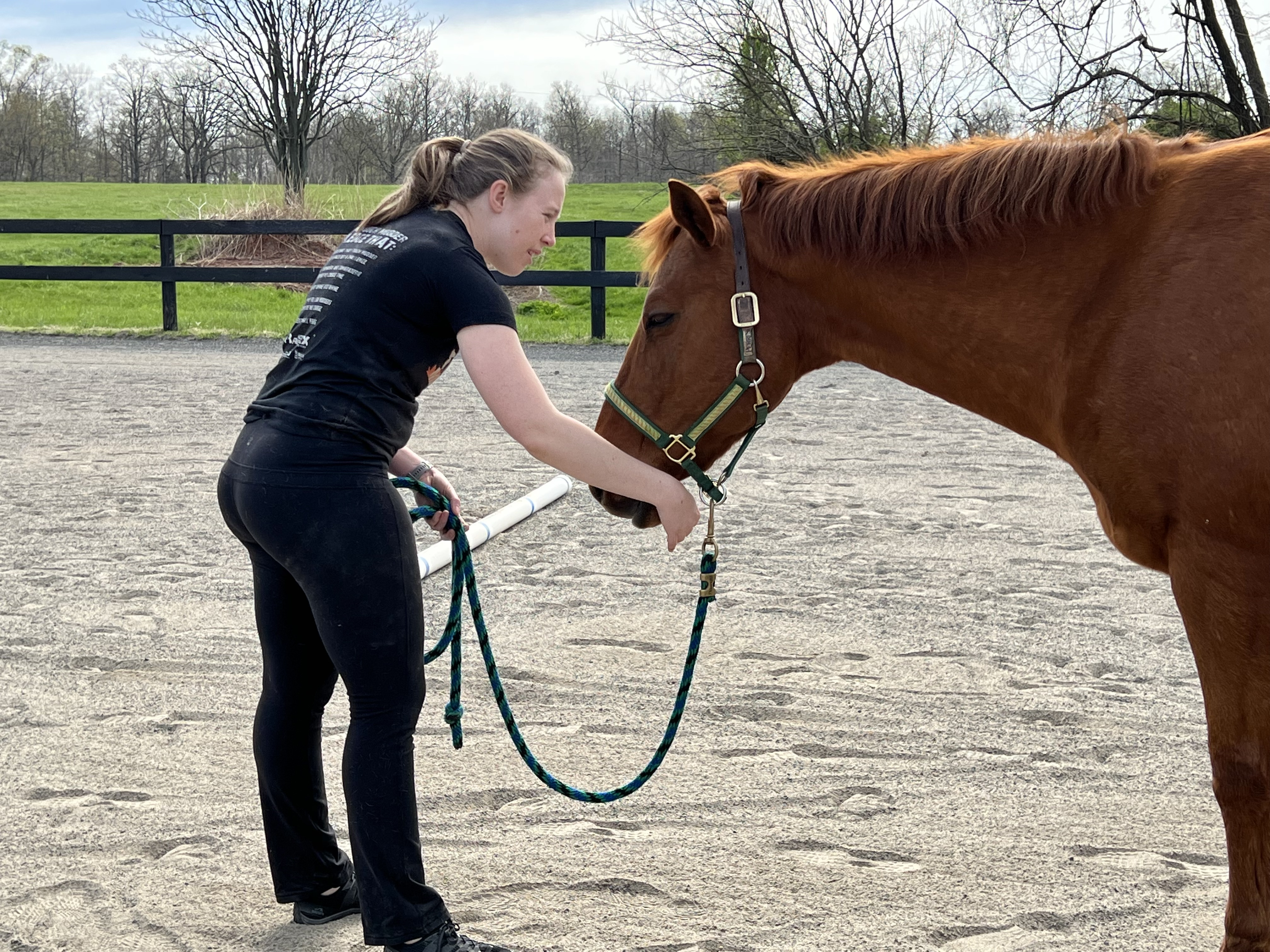
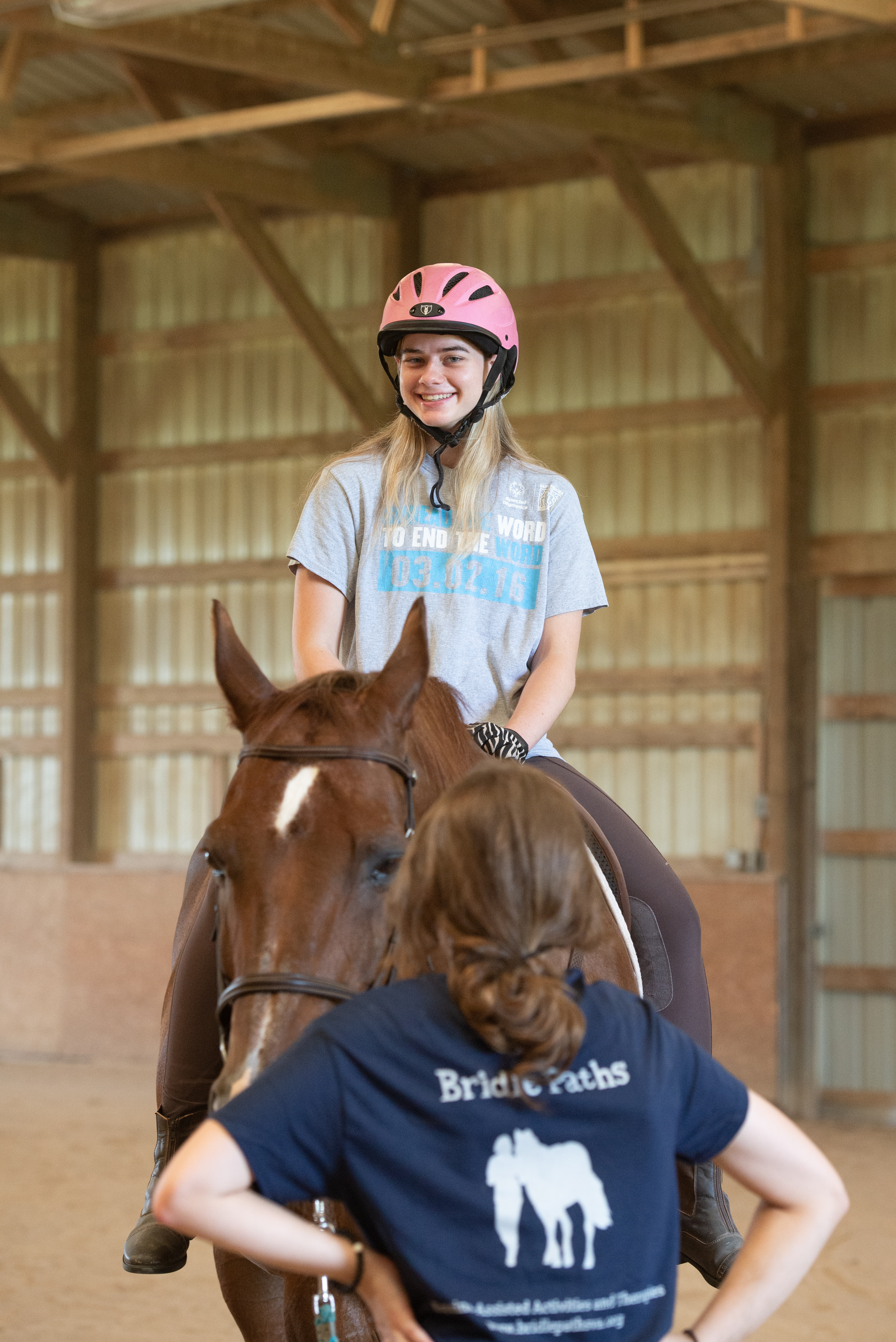
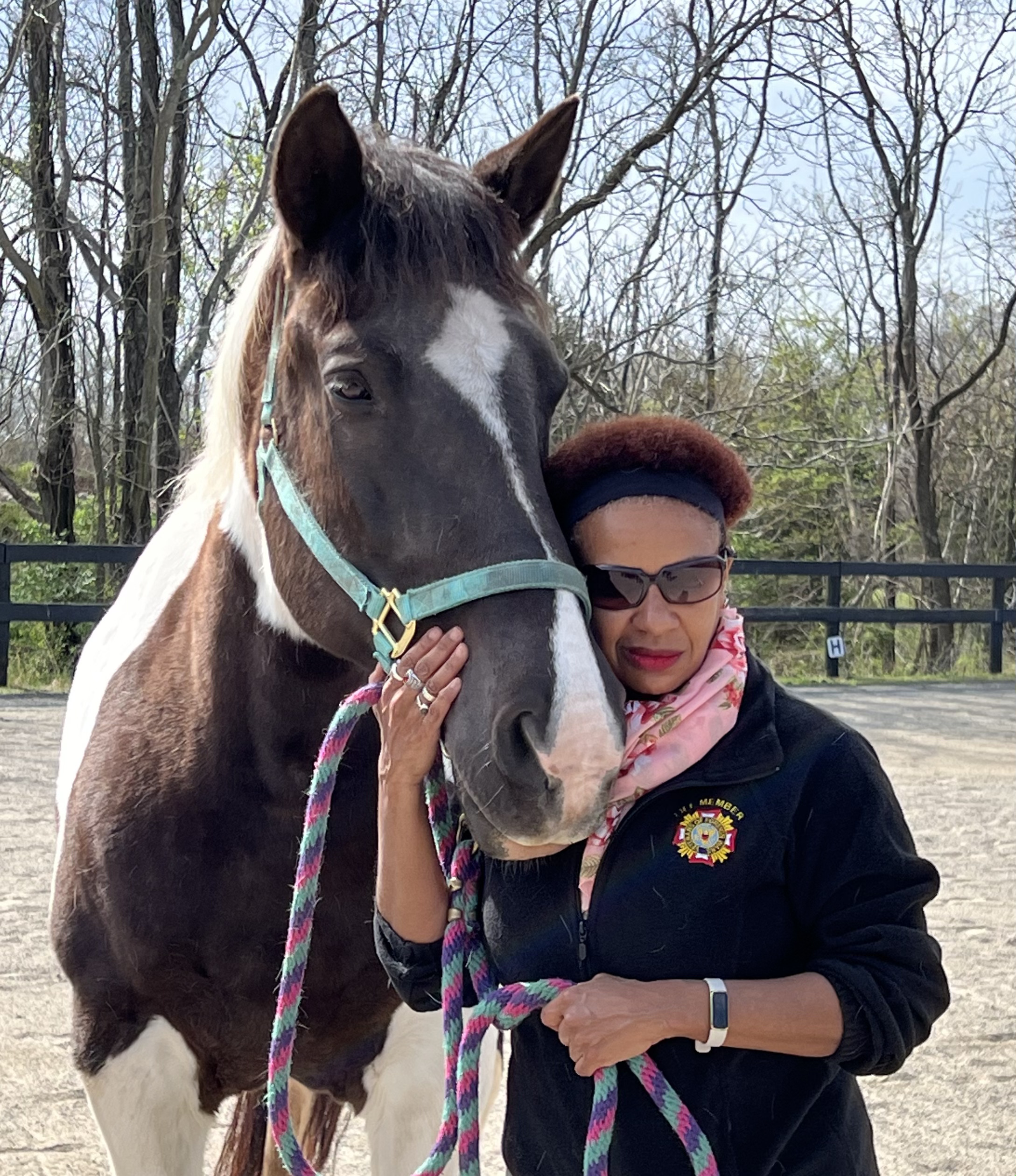
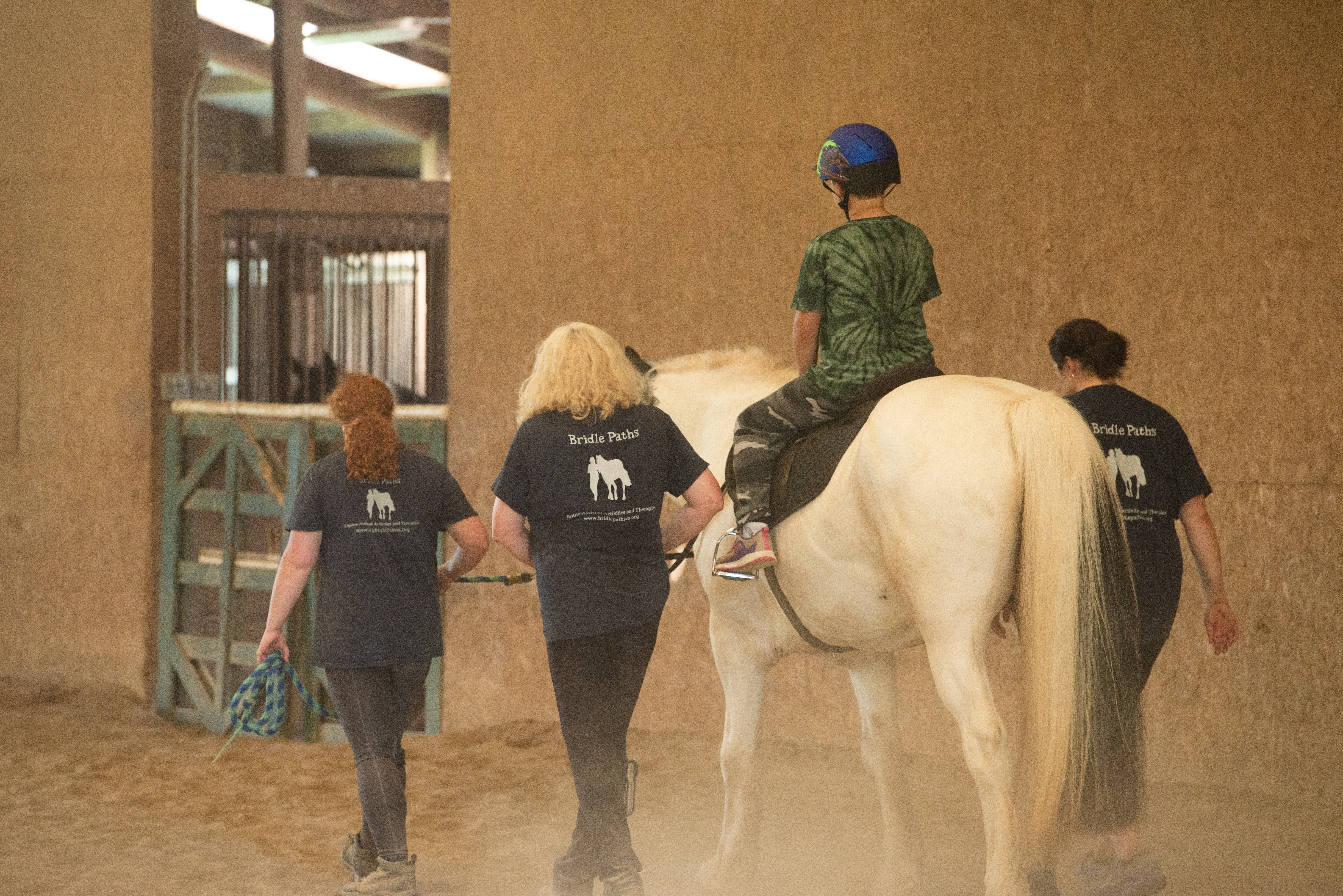
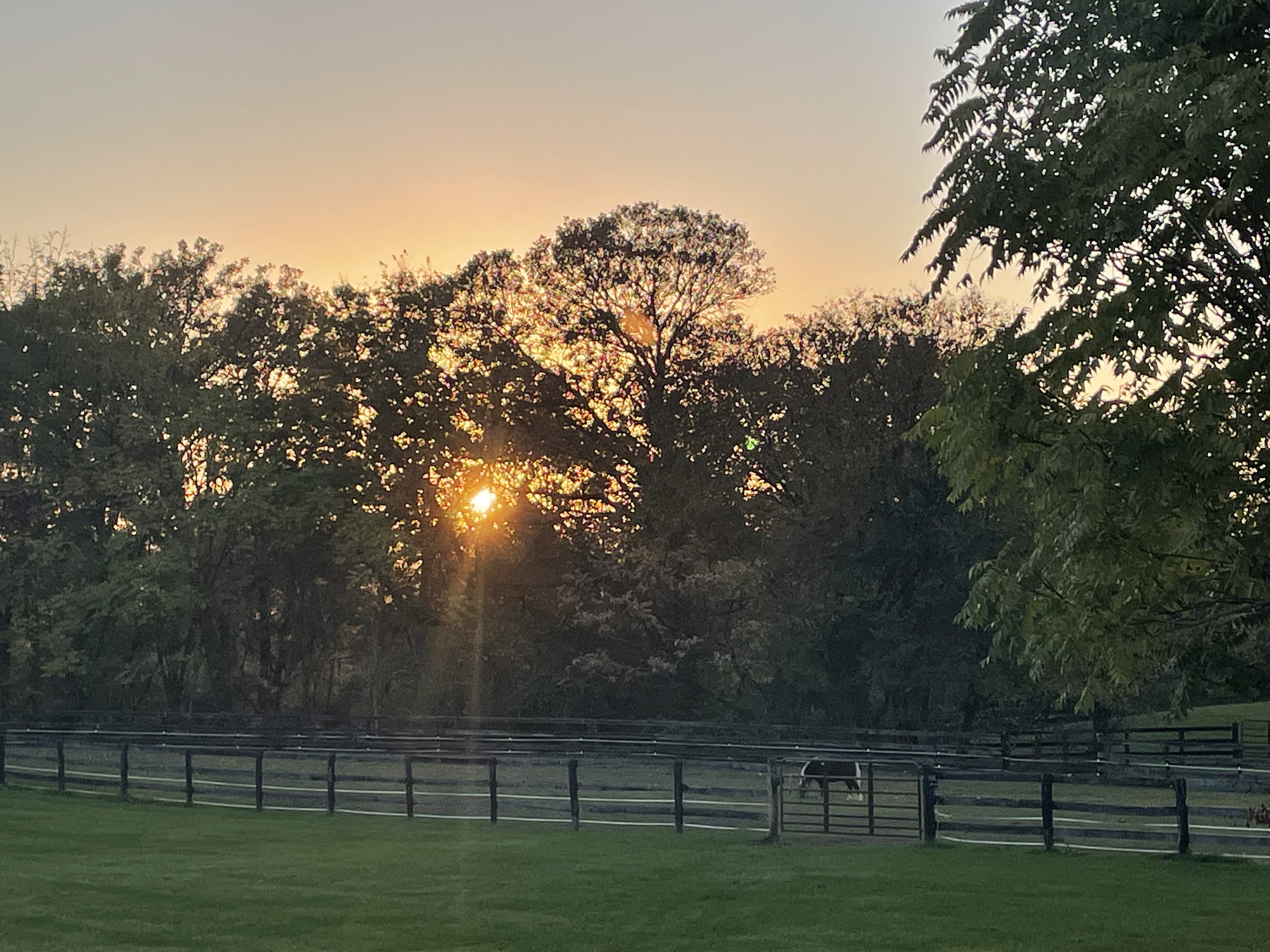
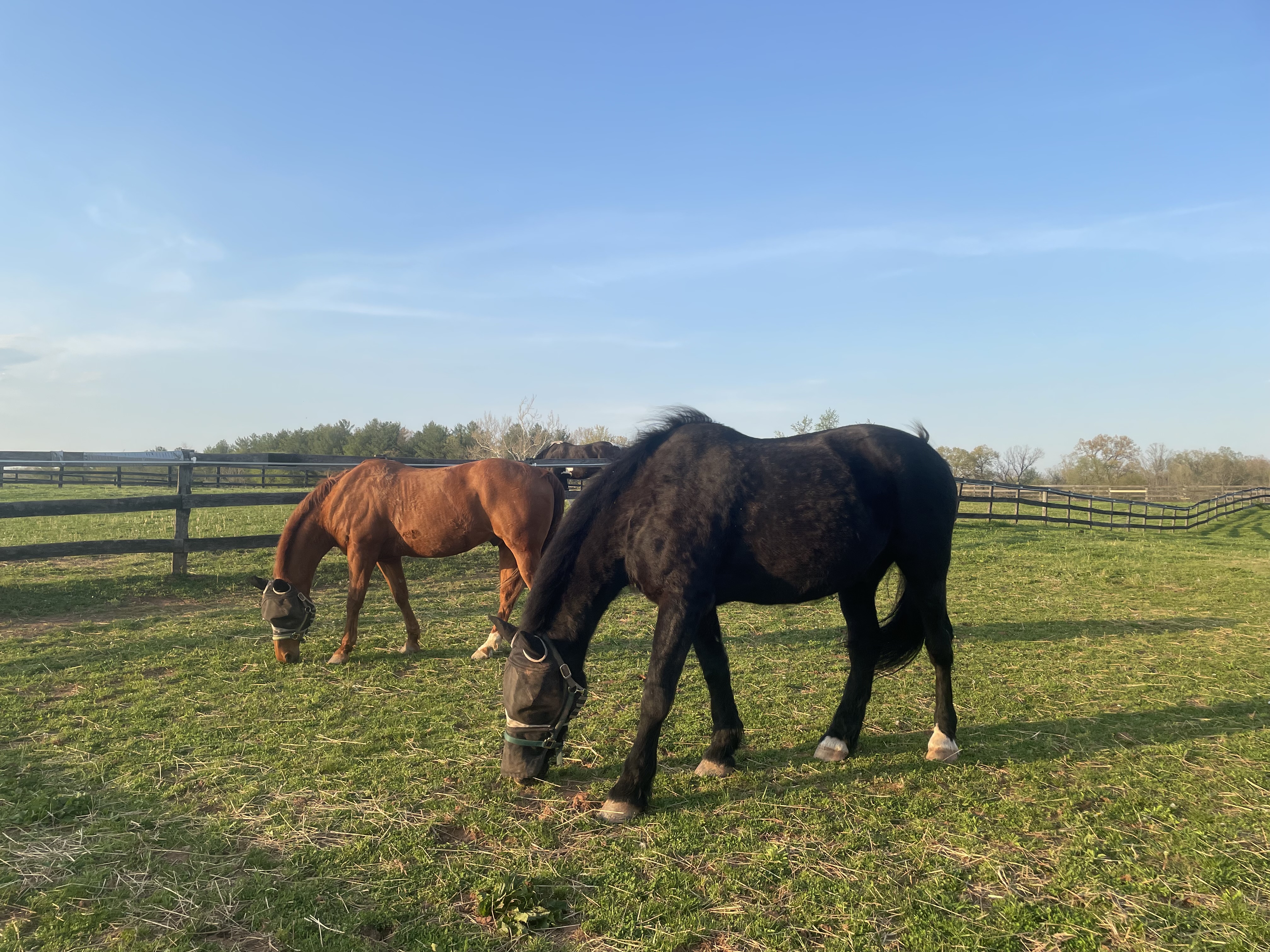

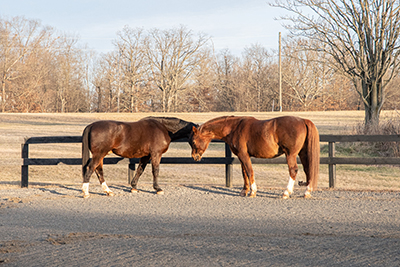
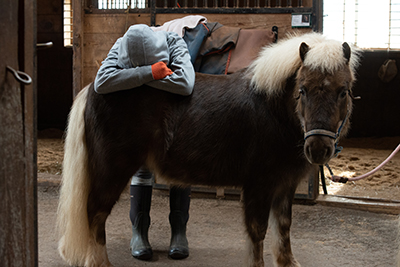
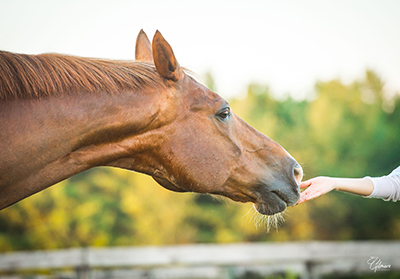
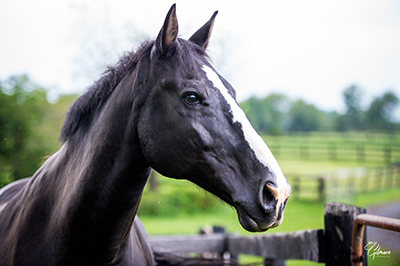
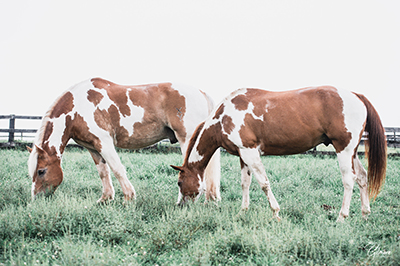
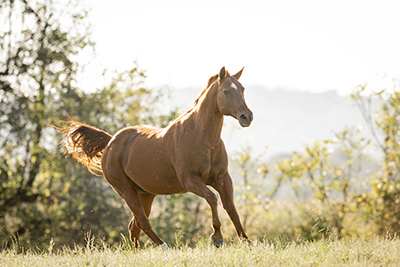
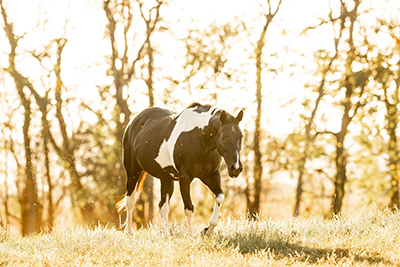
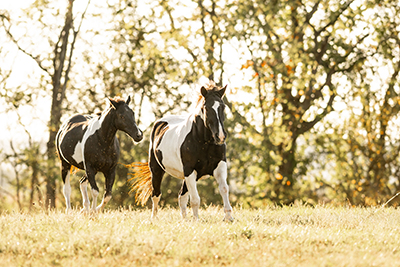
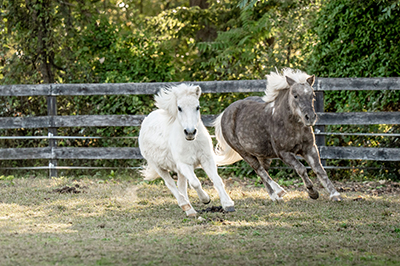
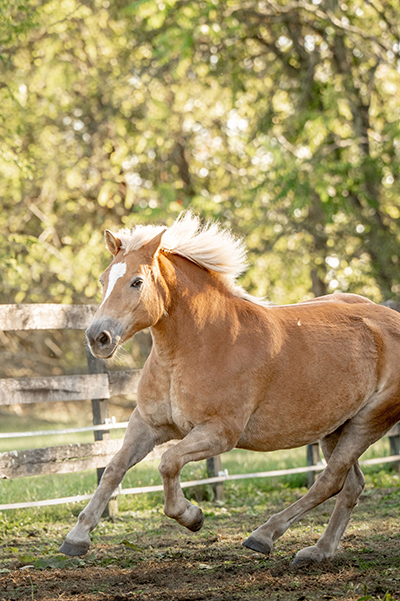
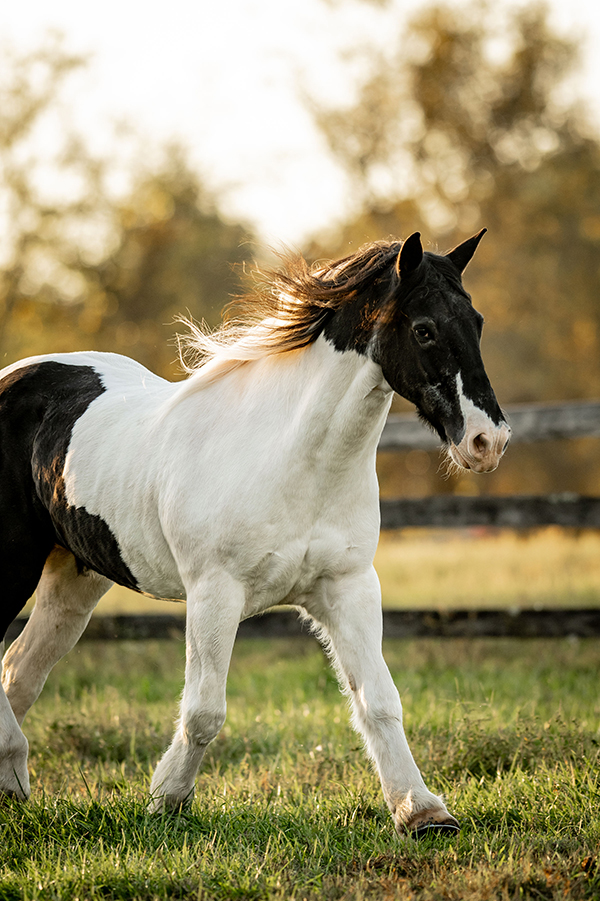
Are the organization's rules, restrictions and warnings (signage) conspicuously posted in easily accessible locations? Yes
Are the organization's emergency contacts, including veterinarian contact information, conspicuously posted in easily accessible locations? Yes
Are human and equine first aid kits easily accessible? Yes
Regarding all shelters where horses are housed including run-in sheds:
Do horses have assigned stalls in the barn/structure(s) or exclusively assigned shelter locations where they are separated from other horses with a barrier? Yes
How many hours per day, on average, are horses stalled or restricted to these sheltered exclusive shelter locations? 9-12
How often are the stalls/shelters cleaned, i.e., kept in good repair and free of standing water, accumulated waste, sharp objects and debris? 6-7 Days a Week
Do all stalls/shelters allow horses to lie down, stand up and turn around and provide protection from inclement weather (wind, sleet, rain, snow and extreme temperatures)? Yes
Are stalls/shelters kept in good repair, with adequate ceiling height, and free of standing water, accumulated waste, sharp objects and debris? Yes
Are floors constructed and maintained for both good drainage and traction? Yes
Is there a ventilation and circulation system in place to allow free flow of air to control temperature, and humidity, and to prevent air stagnation? Yes
Is wiring inaccessible to horses and maintained for safety in all areas of facility? Yes
Are fire prevention/protection measures (fire alarms, extinguishers and sprinkler systems) maintained and in good working order? Yes
Is there adequate lighting to ensure safety in all areas of facility? Yes
How many hours per day, on average, are horses turned out:
Equines are out 9 to 15 hours per day
The following describes the pastures at this facility:
All pastures are fenced to prevent escape or injury
Electric fencing is used; electric wires or tape fence are visibly marked
Fencing checks, such as broken or missing planks, loose fence posts, exposed or loose nails, detached wires, etc., are done regularly
Pastures are rotated
This facility does not have pastures where equines can graze on pasture grass
This facility has a written plan in place for pasture management, which includes guidelines for seeding, fertilizing, irrigation, mowing, dragging, harrowing, manure removal, removal of debris, the control of poisonous plants, and a schedule for cleaning
A dedicated staff person(s) is responsible for pasture management
Barbed wire is used for fencing
Pastures have natural protection for equines (i.e., trees)
Pastures have man-made protection for equines (i.e., shelters)
The following describes the turnout areas other than pastures at this facility:
All turnout areas are fenced to prevent escape or injury
Electric fencing is used; electric wires or tape fence are visibly marked
Fencing checks, such as broken or missing planks, loose fence posts, exposed or loose nails, detached wires, etc., are done regularly
This facility does not have turnout areas
This facility has a written plan in place for the maintenance of turnout areas, which includes a schedule for cleaning, manure removal, and dragging
A dedicated staff person(s) is responsible for the maintenance of turnout areas
Barbed wire is used for fencing
Turnout areas have man-made protection for equines (i.e., shelters)
The following policies and procedures are in place at the facility to restrict public access and to keep horses safe:
The property owner, staff member or caretaker lives on the premises and ensures that public access is restricted and is responsible for the security of the facility and equines
There is a practice in place to monitor equines overnight
No Trespassing signs are posted
Hold Harmless signs are posted
Authorized Personnel Only signs are posted
Visitors are only permitted at specific times
Visitors are only permitted in specific areas
The property is fitted with a security system that is monitored internally by staff (or the property owner)
A security guard is present at night
By Appointment Only signs are posted.
Entrance gates are locked at night
The property is fitted with motion lights
The property is fitted with a security system monitored by police or a professional service
The perimeter of the property is fully fenced
Equine Care/Emergency Preparedness: Bridle Paths (*Main) 2026 and 2025 This section is required.
Horse Health Care/Barn Management Records: What system is used to collect and store health/horse care records?
Notebook or equivalent (technology not utilized)
Our organization utilizes a software application to maintain records
The organization utilizes its own system to maintain records
Our organization would use free cloud-based barn management software if available
The following items are consistent with our feed management plan and practices:
Equines are provided with individualized feeding plans, including supplements, according to the equine's age, breed/type, condition, size, work level and any health issues, consisting of nutritious food provided in sufficient quantity and access to adequate natural forage, or be fed daily, or as recommended by the organization's veterinarian
Feed plans are determined in consultation with a veterinarian
Supplement plans are determined in consultation with a veterinarian
Equines are fed grain in individual stalls
Staff and/or volunteers are trained in proper feed measurements and protocols and observed periodically to ensure they are feeding correctly
The feed chart is centrally located and updated as needed
The area(s) where hay, feed, grain, and supplements are stored are kept clean, free of debris and chemicals, and protected from weather and other animals in rodent-proof and mold-proof containers and grain bins
Feed, supplements and hay types are clearly labeled
Water sources, i.e., buckets, troughs, automatic waterers, etc. are kept clean, free of contaminants, debris and chemicals, protected from weather and other animals, and be positioned or affixed to minimize spillage.
Medications are kept in a secure area
Equines are fed grain in groups
Is clean, potable water available at all times for all equines? Yes
Hoof Care: How often is hoof care provided for each equine? Every 4-8 weeks and when an issue arises
Dental Care: How often is dental care provided for each equine? Annually and when an issue arises
Horse checks: How often are equines visually and physically checked by personnel at the facility? Every day or 6 days a week
Our organization has the following parasite and fly/insect control protocols in place, including remedies used to control flies and insects:
Fly/Insect Control Remedies:
Fly Spray Repellent
Fly Masks
Fans
Our organization follows the parasite control guidelines of our veterinarian, including fecal testing and de-worming
The following represent the biosecurity practices in place at facility:
Our organization follows the biosecurity guidelines of our veterinarian
Sick, affected and/or quarantined equines do not have contact with other equines or other animals
The organization has a written biosecurity plan
Staff are trained in best practices related to biosecurity
Volunteers are trained in best practices related to biosecurity
A specific individual is trained and assigned to care for sick, affected and/or quarantined equines
Sick, affected and/or quarantined equines are cared for last if the caretaker must also care for healthy equines
Restricted access signs are posted at primary points of access to sick, affected and/or quarantined equines
Hand sanitizers are available at all primary points of access to sick, affected and/or quarantined equines
Footbaths are available at all primary points of access to sick, affected and/or quarantined equines
Manure and bedding from sick, affected and/or quarantined equines is removed from the facility - not put in open air piles, and not spread on pastures
Quarantine areas, such as stalls, aisle ways, paddocks, and common areas, are cleaned (and needed, disinfected) after conclusion of the quarantine.
Trailers/vans used by sick, affected and/or quarantined equines are cleaned and disinfected after each use and cleaning takes place away from where equines are sheltered
Equipment used by sick, affected and/or quarantined equines is not shared
Equipment used by sick, affected and/or quarantined equines is cleaned of organic debris and disinfected after each use
Latex gloves, or equivalent gloves, are worn when working with sick, affected and/or quarantined equines
Equines are not quarantined on arrival.
Additional information on biosecurity:
Generally speaking, our exposure to biosecurity risks is comparatively small because we have a closed herd. Our horses do not travel to other locations for competitions or other events. On the rare occasion that a new horse joins the herd, we have the ability to quarantine that animal for at least two weeks while we evaluate suitability for the program. Horses that come from states other than Virginia (Maryland, for example) come with a health certificate that is issued within seven days of the horse's arrival at our facility. We obtain vaccination records and other pertinent veterinary information for each horse that comes into the program for a trial period, and we are considering requiring a veterinary certificate for horses that enter the property from Virginia as well. We have incorporated the American Association of Equine Practitioners (AAEP) biosecurity recommendations into our written and practiced policies and procedures. Additionally, we’ve hired an equine manager who is a vet tech, polo player, and professional trainer and rider (as well as a resident in mental health counseling). She is helping us to implement the AAEP recommendations and train staff in biosecurity matters and horse care and conditioning more generally. We do have the ability to monitor the horses overnight if needed, because the property owners reside on site and can check in as required. Our equine manager lives five minutes away, and our executive director lives fifteen minutes away, in the event that a horse requires immediate attention. We are evaluating the feasibility of placing a hard-wired camera with a motion sensor and a floodlight in the barn to permit overnight monitoring of horses that are sick or quarantined. Additionally, our farm is located only fifteen minutes away from the Marion Dupont Scott Equine Medical Center, where we can access world-class veterinary care for horses that require hospitalization.
The following represent the manure removal practices in place at facility:
Manure is piled in an area where equines are not located
Manure is hauled, sold or given away
Manure piles are composted or spread on pastures
Our organization adheres to the manure management guidelines set by the state, local authorities, and/or our organization's veterinarian
Manure is stored in dumpster(s)
Manure piles are covered
The following steps are taken to help staff and volunteers readily identify each horse on the property:
Equines are assigned the same exclusive stall/shelter location each day
Name plates are located on the stall/shelter location
Photos are located on the stall/shelter location
Equines wear halters with nametags
A notebook or binder with photos and information on each equine is easily accessible
Equine photos and profiles are available on the website
Staff/volunteers are provided training on conformation, markings, colors, and breeds
Team leaders work with new staff/volunteers until they are able to identify the equines
A map/diagram is posted showing the location of each equine with equine names and photos
Staff and volunteers are provided with an information packet with equine profiles, including photos and detailed descriptions
Our organization has the following policies and procedures in place pertaining to tack, apparel and equipment:
All equines have specifically assigned apparel, equipment and tack (saddles/bridles if ridden) that is not shared
Blankets, sheets and turn out apparel are fitted and utilized for each equine appropriate to the equine's needs and the weather conditions
Blankets, sheets and turn out apparel are cleaned regularly as needed
Riding Tack is always cleaned after each use
Riding Tack is inspected for overall working condition before each use by trained personnel
Riding Tack is assessed for fit before each use by trained personnel
Riding Tack is assessed for fit by trained personnel when an equine's body condition changes
Riding Tack is assessed for fit by trained personnel when an equine's disposition changes
This facility enlists the services of a professional saddle fitter at least once a year
Assigned riding tack is clearly labeled
Riding Tack is stored in a climate-controlled location
Helmets are shared
Helmets are cleaned/disinfected after each use
Helmets are replaced after a fall
Helmets are replaced at least every five years.
Saddles are shared
Saddle pads are shared
Bridles are shared
Bits are shared
Blankets are shared
Sheets are shared
Turnout apparel is shared
Halters are shared
Riding Tack is always cleaned at least weekly
Riding Tack is cleaned only when needed
No equines are ridden; saddles, bridles, etc. not applicable.
Emergency Preparedness: Bridle Paths: *Main This section is required.
The following plans, policies, and procedures are in place at the facility to handle emergencies and address weather related issues, fire safety procedures, and/or any additional hazardous scenarios the facility could potentially experience:
Emergency procedures are posted prominently
The facility owns or has access to a generator
The facility maintains at least two weeks of hay, feed, shavings and medications
The facility collects and maintains medical information from staff, volunteers, and clients
The facility maintains appropriate liability and/or workers' compensation insurance
The organization has a written emergency preparedness/safety plan (EPP)
Local fire department and/or the state's emergency planning department procedures
Medical emergencies for clients, staff, and volunteers
Medical emergencies for equines
Evacuation plans
Power outages
Fire
Natural Disasters - thunderstorm, hurricanes, earthquakes, tornados, etc
Protocols to notify emergency personnel
Building/facility exit plans
Terrorist attacks
The facility follows the specific procedures to help PREVENT emergency situations:
Smoking is strictly prohibited
NO SMOKING signs are posted prominently
Permanent or temporary structures where equines are stalled are kept free of dust, cobwebs, trash, cleaning rags, and other flammable items
Aisles and doorways are kept clear
Hay is stored away from permanent or temporary structures where equines are stalled
Heaters with automatic shutoff settings are used
How often are the following checked or performed?
Fire Extinguishers are checked: Annually
Smoke detectors are checked: Not at all/NA
Fence lines are checked: Daily
Turnout Areas are checked: Weekly
Sprinkler systems are checked: Not at all/NA
Fire drills are conducted: Annually
Review of safety protocols with staff are conducted: Semi-annually
Review of safety protocols with volunteers are conducted: Semi-annually
The Emergency Preparedness Plan is reviewed and updated: Annually
Equine Transportation: 1= Onsite: 1 (0 + 1) + Offsite: 0
2-horse van/trailer with truck:
1 Access onsite but not owned
© Copyright 2018 EQUUS Foundation 1393 4.00